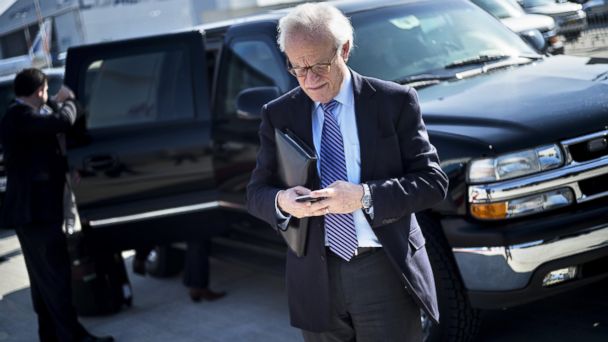Top US Middle East Envoy Gives Post-Mortem on Peace Talks

US Special Envoy for Israeli-Palestinian Negotiations Martin Indyk is seen in this file photo, Jan. 6, 2014. Brendan Smialowski/AFP/Getty Images.
Martin Indyk, who for the past nine months has been shuttling between the Israelis and Palestinians in the latest round of peace talks, gave an expansive post-mortem of the failed negotiations in which he blamed both sides for not wanting peace badly enough.
"One problem that revealed itself in these past nine months is that the parties, although both showing flexibility in the negotiations, do not feel the pressing need to make the gut-wrenching compromises necessary to achieve peace," Indyk, speaking at a dinner held by the Washington Institute for Near East Policy, said.
Indyk had particularly pointed criticism for the Israelis, who pursued the construction of settlements in the West Bank during negotiations, stoking the ire of the Palestinians.
At one point in December 2013, Israel announced additional settlements along with the release of a tranche of Palestinian prisoners, which was part of an agreement reached earlier in the peace talks.
Israelis then claimed that Palestinian Authority president Mahmoud Abbas had agreed to more settlement activity in exchange for the already agreed-upon prisoners, which caused Abbas to "shut down," Indyk said.
Indyk specifically blamed the faction of Israelis who did not want peace talks to succeed, and used settlement activity as a way of "sabotaging" negotiations.
"I can tell you firsthand that that had a very damaging effect. And by the way, it was intended to have a damaging effect," he continued.
He also warned that continued settlement activity could lead, ultimately, to a de facto bi-national state in which an increasingly large Arab population overwhelms a Jewish minority living in the same state.
"Rampant settlement activity - especially in the midst of negotiations - doesn't just undermine Palestinian trust in the purpose of the negotiations; it can undermine Israel's Jewish future. If this continues, it could mortally wound the idea of Israel as a Jewish state - and that would be a tragedy of historic proportions," he said.
But Palestinians were also to blame, he continued, saying they decided it was easier for them to sign on to worldwide conventions and gain recognition by international bodies in pursuit of statehood - a non-negotiable for Israel - than it was to work on a long-lasting compromise.
And both sides at points made outrageous claims to the public that hampered private engagement.
"While serious efforts were under way behind closed doors, we tried to get the leaders and their spokesmen to engage in synchronized positive messaging to their publics," he said.
Instead, he continued, the chief Palestinian negotiator at the time accused Israeli Prime Minister Benjamin Netanyahu of plotting Abbas' assassination, and Abbas was met with the assertions of agreeing to additional settlements in exchange for the release of prisoners.
Both sides became fed up with the other, and Abbas in particular had one other factor that caused him to withdraw, because, Indyk noted, he is nearing the end of his career and became more focused on his political legacy and succession than about reaching an agreement as the talks went on.
By mid-March - towards the very end of the negotiations - Abbas came to the conclusion that he didn't have a reliable partner for a two-state solution, Indyk said, and decided to shift to solidifying his legacy.
"It's like we're ships passing in the night," Indyk continued.
Despite the failure of the negotiators to achieve progress in this round, Indyk said all parties are better informed about what it takes to achieve a permanent status agreement.
And he dismissed the idea that the peace process was dead for now.
"In the Middle East, it's never over," he said.